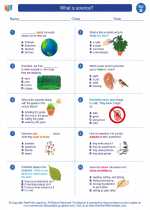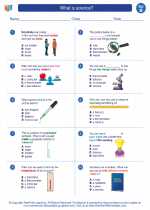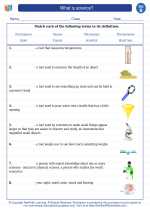Vertebrates
Vertebrates are a group of animals that have a backbone or spinal column. This group includes fish, amphibians, reptiles, birds, and mammals. The backbone is made up of individual bones called vertebrae, which protect the spinal cord and provide support for the body.
Here's a study guide to help you understand more about vertebrates:
What are Vertebrates?
- Vertebrates are animals with a backbone or spinal column.
- They are part of the subphylum Vertebrata in the phylum Chordata.
Classification of Vertebrates
- Fish: Cold-blooded animals that live in water and have scales and gills for breathing.
- Amphibians: Cold-blooded animals that typically start their lives in water with gills and then develop lungs as adults.
- Reptiles: Cold-blooded animals that have scales or bony plates and lay eggs on land.
- Birds: Warm-blooded animals with feathers, beaks, and lay hard-shelled eggs.
- Mammals: Warm-blooded animals that have hair or fur, produce milk to feed their young, and give birth to live offspring.
Importance of Vertebrates
Vertebrates play crucial roles in ecosystems and food chains. They contribute to the balance of nature through predation, seed dispersal, and pollination. Additionally, many vertebrates, especially mammals, have close relationships with humans, providing companionship, food, and valuable resources.
Adaptations of Vertebrates
Vertebrates have evolved various adaptations to survive in their environments. These include specialized body coverings (scales, feathers, fur), efficient respiratory systems for breathing (gills, lungs), and unique modes of reproduction (laying eggs, giving live birth).
Understanding vertebrates is essential for comprehending the diversity of life on Earth and the interconnectedness of different species within ecosystems.
[Vertebrates] Related Worksheets and Study Guides:
.◂Science Worksheets and Study Guides Second Grade. What is science?

 Worksheet/Answer key
Worksheet/Answer key
 Worksheet/Answer key
Worksheet/Answer key
 Worksheet/Answer key
Worksheet/Answer key
 Vocabulary/Answer key
Vocabulary/Answer key
